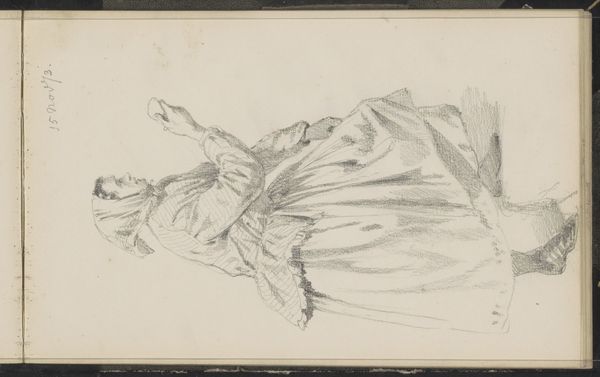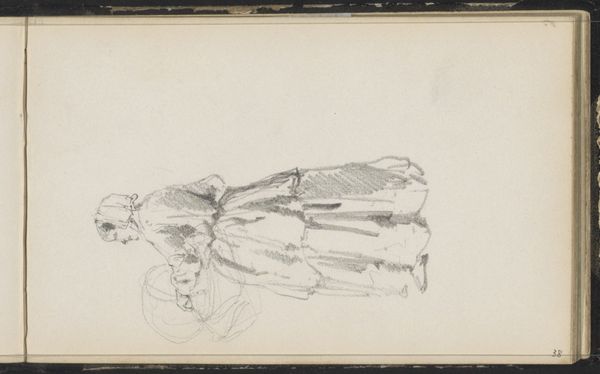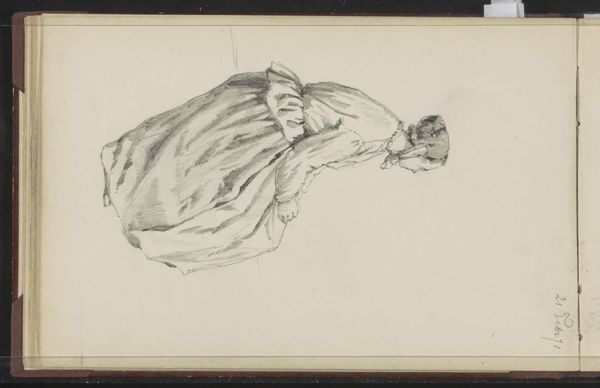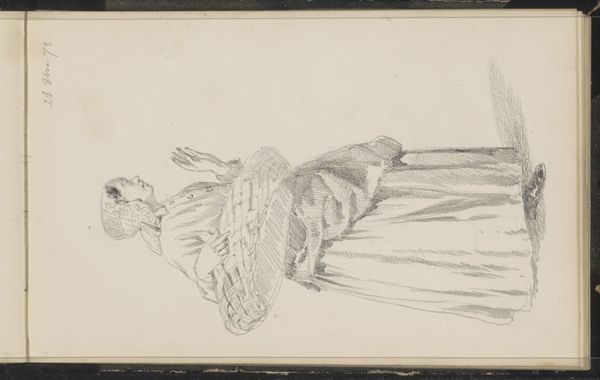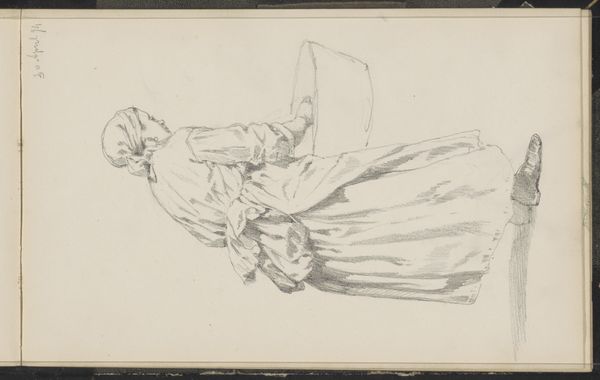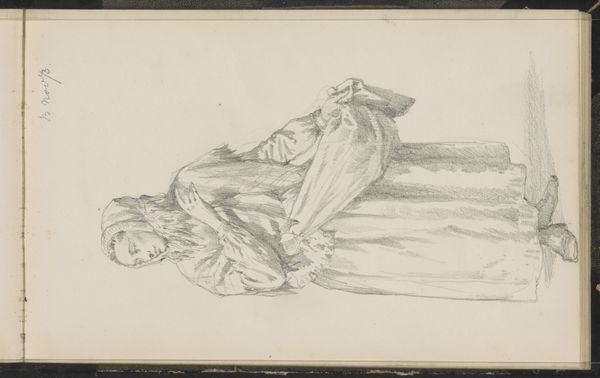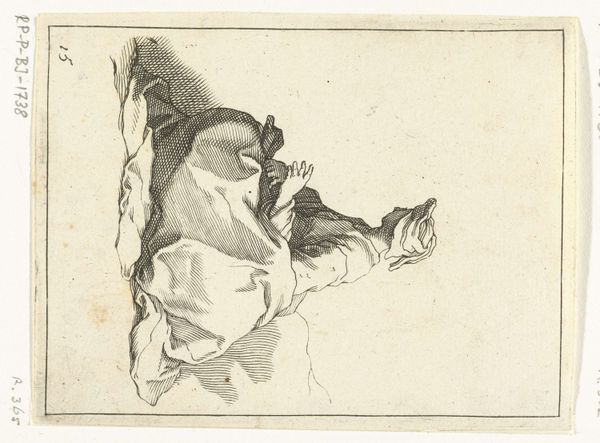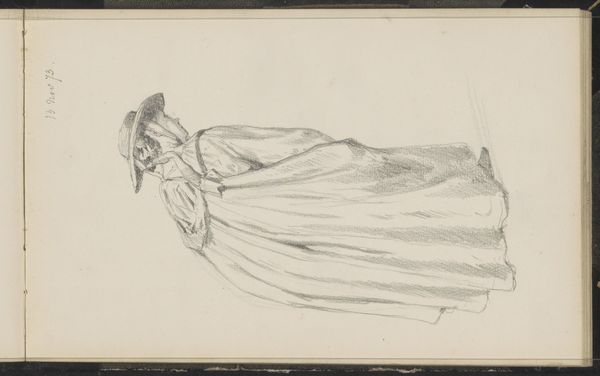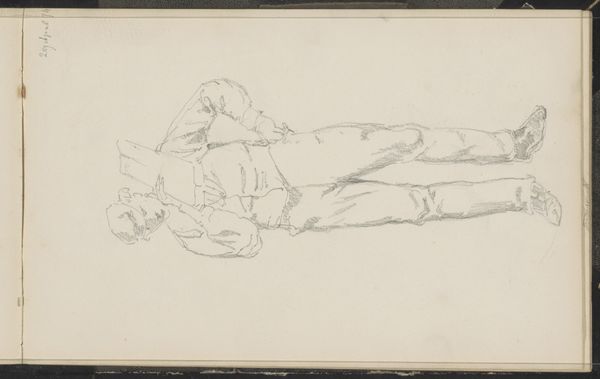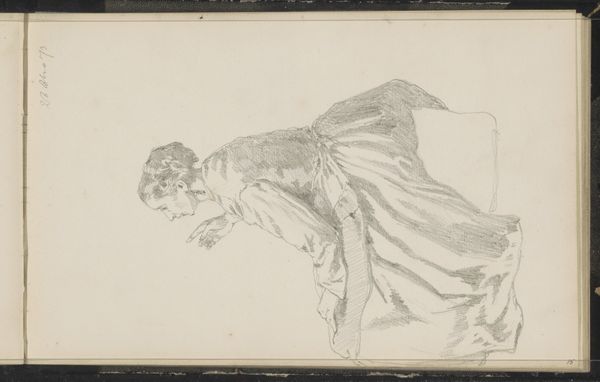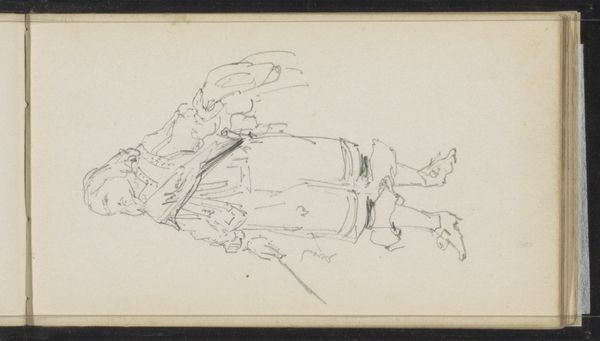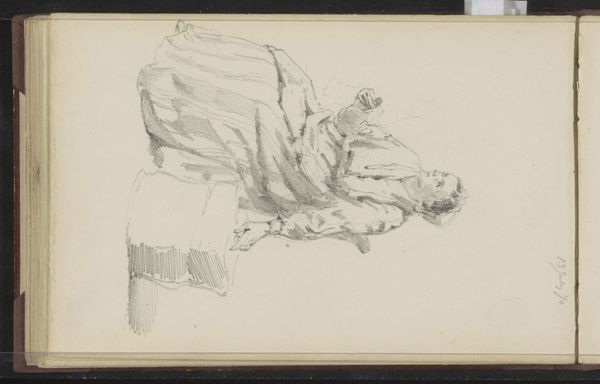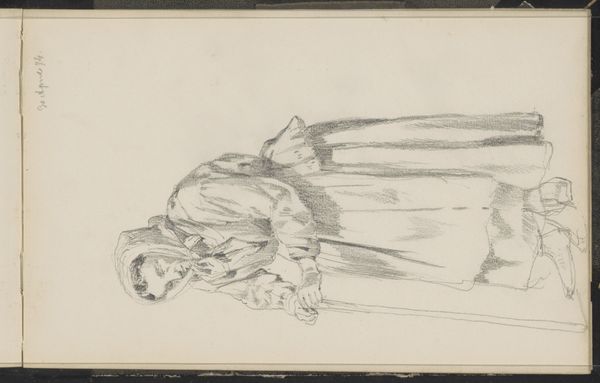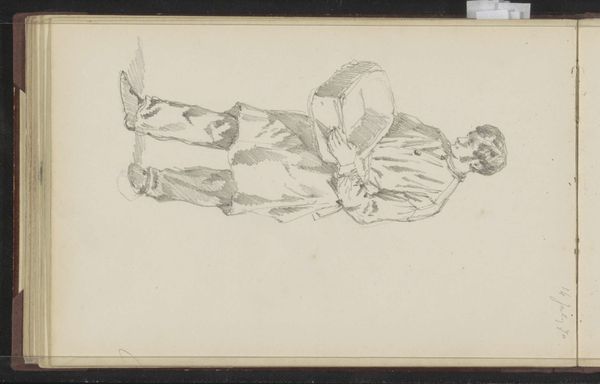
drawing, pencil
#
drawing
#
toned paper
#
light pencil work
#
dutch-golden-age
#
pen sketch
#
pencil sketch
#
sketch book
#
figuration
#
personal sketchbook
#
ink drawing experimentation
#
pen-ink sketch
#
pencil
#
sketchbook drawing
#
genre-painting
#
sketchbook art
#
realism
Copyright: Rijks Museum: Open Domain
Curator: This is Cornelis Springer’s "Man met een ton," possibly from 1874. It’s a pencil drawing on toned paper, housed here at the Rijksmuseum. Editor: My first impression is the figure's weightiness. There's a certain melancholy in the sketch – the slumped posture, the simple lines suggesting weariness... Curator: Indeed. Springer uses very economical pen and pencil strokes. The toned paper allows him to suggest volume and shadow without laborious shading. Think about the availability of drawing materials in the late 19th century – relatively accessible, encouraging artists to quickly capture observations. Editor: The barrel is intriguing. Cylinders appear in art history as symbols of potential or confinement. This man’s interaction is ambiguous; he could be working, moving the barrel, or perhaps is he somehow leaning on it for support? Is this meant as some allegorical image about burden and perseverance? Curator: Perhaps. Consider also the Dutch Republic's strong merchant class in earlier centuries; barrels are essential for shipping. Is Springer making an implied social statement about the dependence of the Dutch on shipping commerce, or the weight of labor that rests upon ordinary citizens? Editor: Or maybe the artist isn't loading this figure with symbols but simply documenting everyday existence! The loose rendering suggests spontaneity. Curator: The roughness is significant! Springer's skilled hand deliberately veers away from perfect finish, acknowledging the unrefined realities of labour. This contrasts the refined art typically collected by the elite. It invites a different type of viewership. Editor: I’m now also struck by how incomplete the barrel is. It almost looks spectral. Curator: It points toward a sketch's inherently incomplete and exploratory nature. Editor: Seeing Springer’s rapid strokes reminds me of fleeting human experiences and the passage of time. A melancholic document, definitely. Curator: And for me, this sketchbook glimpse of the working class helps re-evaluate canons and the role of art, its media, and mode of production at that historical moment.
Comments
No comments
Be the first to comment and join the conversation on the ultimate creative platform.
